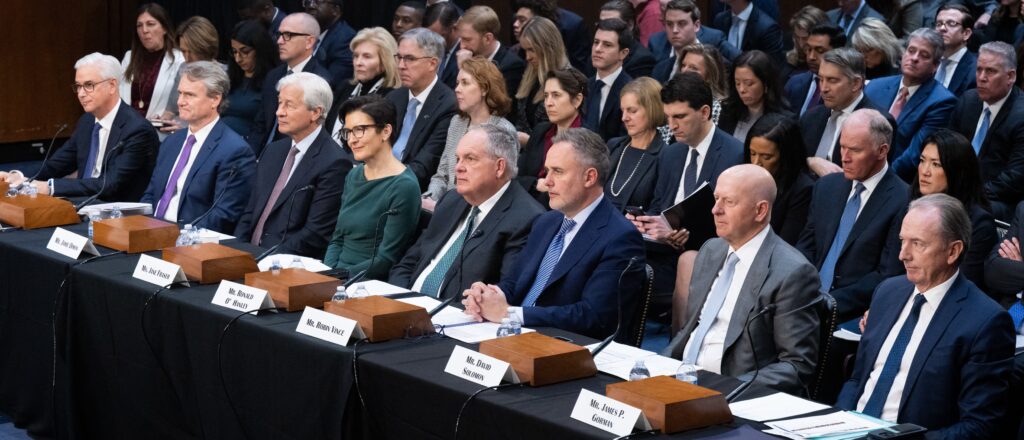Banks are sending the highest number of lobbyists to Washington, D.C., since the global financial crisis in 2007 as the Biden administration looks to institute new regulations on the industry, according to Reuters.
Banks with more than $50 billion in assets and seven trade groups sent a total of 486 federal lobbyists to the Capitol in 2023, 3.4% higher than in 2022, when numbers also swelled, according to data from OpenSecrets analyzed by Reuters. The sector has faced pressure from regulators recently with proposals to crack down on fair lending abuses, transaction fees, capital requirement hikes and changes related to the crisis that rocked the sector in early 2023 that could affect total revenue. (RELATED: Biden Says The Economy Is Booming. So Why Are All These Companies Laying People Off?)
The eight largest U.S. banks sent 191 lobbyists at the end of 2023, not significantly different from previous years, with the increase being dominated by smaller banks, according to Reuters. Banks outside of the top eight but with over $100 billion in assets sent 255 lobbyists in 2023, an 11% increase since 2022 and a new record.
The increase from smaller banks coincides with a divergence in the profits of America’s financial institutions, with three of the four largest banks in the U.S. posting huge profits for 2023, while many small and mid-sized banks struggle with factors like high interest rates.
U.S. Banks are facing unrealized losses of roughly $685 billion (updated as of Q3). This problem isn’t going away any time soon until the Federal Reserve begins cutting. New York Community Bancorp $NYCB might be the next victim. pic.twitter.com/Hi3CQj4dYu
— Barchart (@Barchart) January 31, 2024
Banks underwent a massive lobbying effort in the second half of 2023 to stop proposed capital hikes in the Basel III endgame proposal, according to Reuters. The Basel III endgame regulations stem from international reforms posed following the global financial crisis, with the Senate Banking Oversight Committee considering the regulations in December.
Regulators under Biden have been empowered after Trump-era policies were rescinded, enabling them to have greater oversight over what the administration considers abusive behavior by financial services in its lending practices, according to The Associated Press. The Biden administration has also taken aim at “junk fees,” or extra charges that the White House argues can hide the real price and can in turn be predatory.
Bank lobbying efforts spiked following the global financial crisis from 2007 to 2009 in an effort to change terms in the Dodd-Frank Wall Street Reform and Consumer Protection Act of 2010, which introduced a number of restrictions that sought to reduce risk in the financial system, according to Investopedia. The law also created the Consumer Financial Protection Bureau (CFPB), which aimed to protect consumers from predatory banking practices.
Critics of lobbying efforts by banks on Dodd-Frank point to watered-down provisions such as the exclusion of car loans from being under the purview of the CFPB, the lack of action on the government-sponsored entities Fannie Mae and Freddie Mac and the absence of effective measures to prevent banks from being too big to fail, according to The Atlantic.
Small and mid-sized banks are especially vulnerable in the current system due to a string of bank failures that hit the industry in 2023, leading depositors to shy away from smaller institutions in exchange for megabanks where they believe their funds will be more secure. The crisis began with a bank run at Silicon Valley Bank, spreading to First Republic and Signature, which all collapsed and had to be bailed out by the Federal Deposit Insurance Corporation(FDIC).
The Committee on Banking, Housing and Urban Affairs and the White House did not immediately respond to a request to comment.
All content created by the Daily Caller News Foundation, an independent and nonpartisan newswire service, is available without charge to any legitimate news publisher that can provide a large audience. All republished articles must include our logo, our reporter’s byline and their DCNF affiliation. For any questions about our guidelines or partnering with us, please contact licensing@dailycallernewsfoundation.org.


